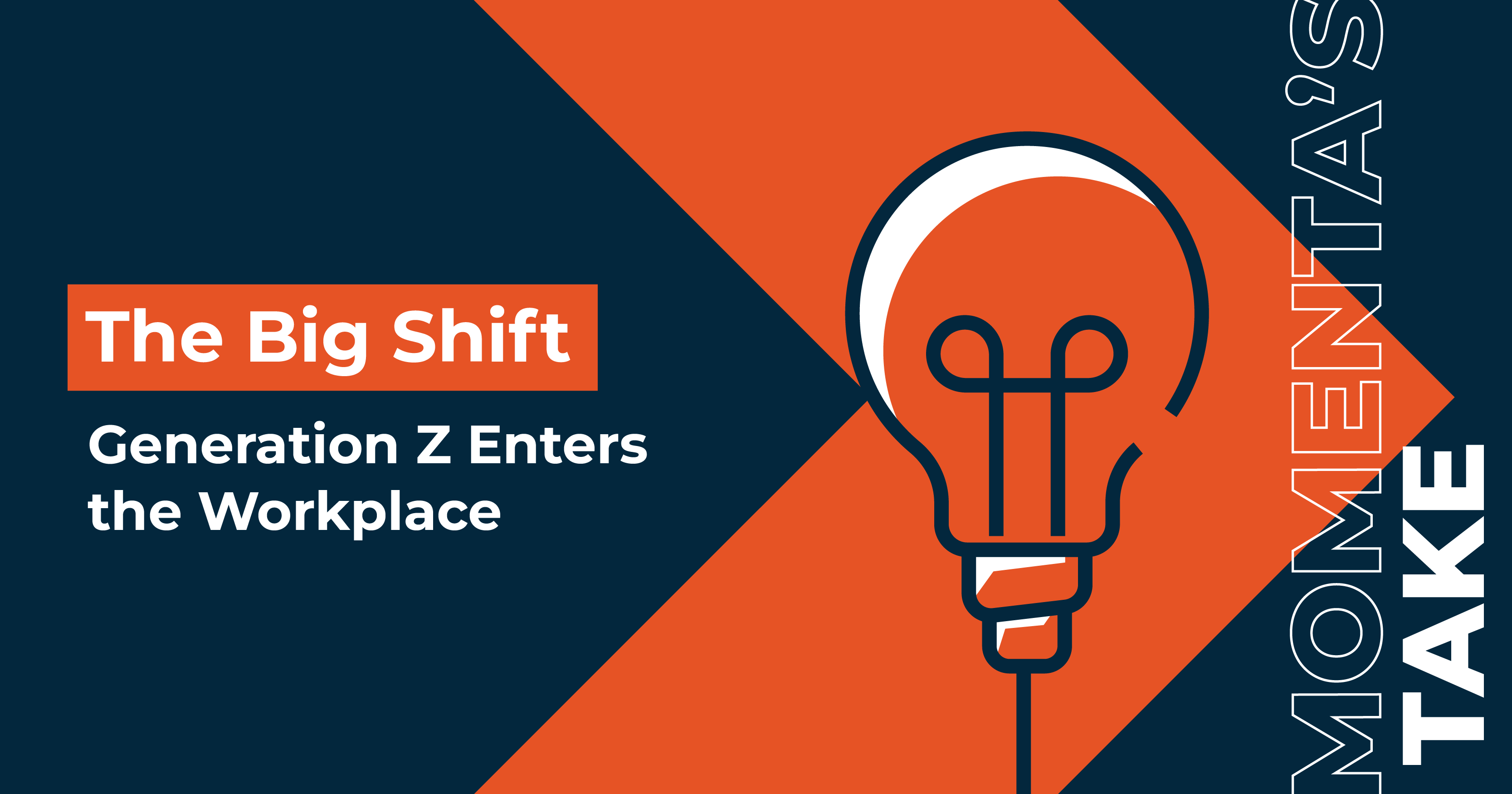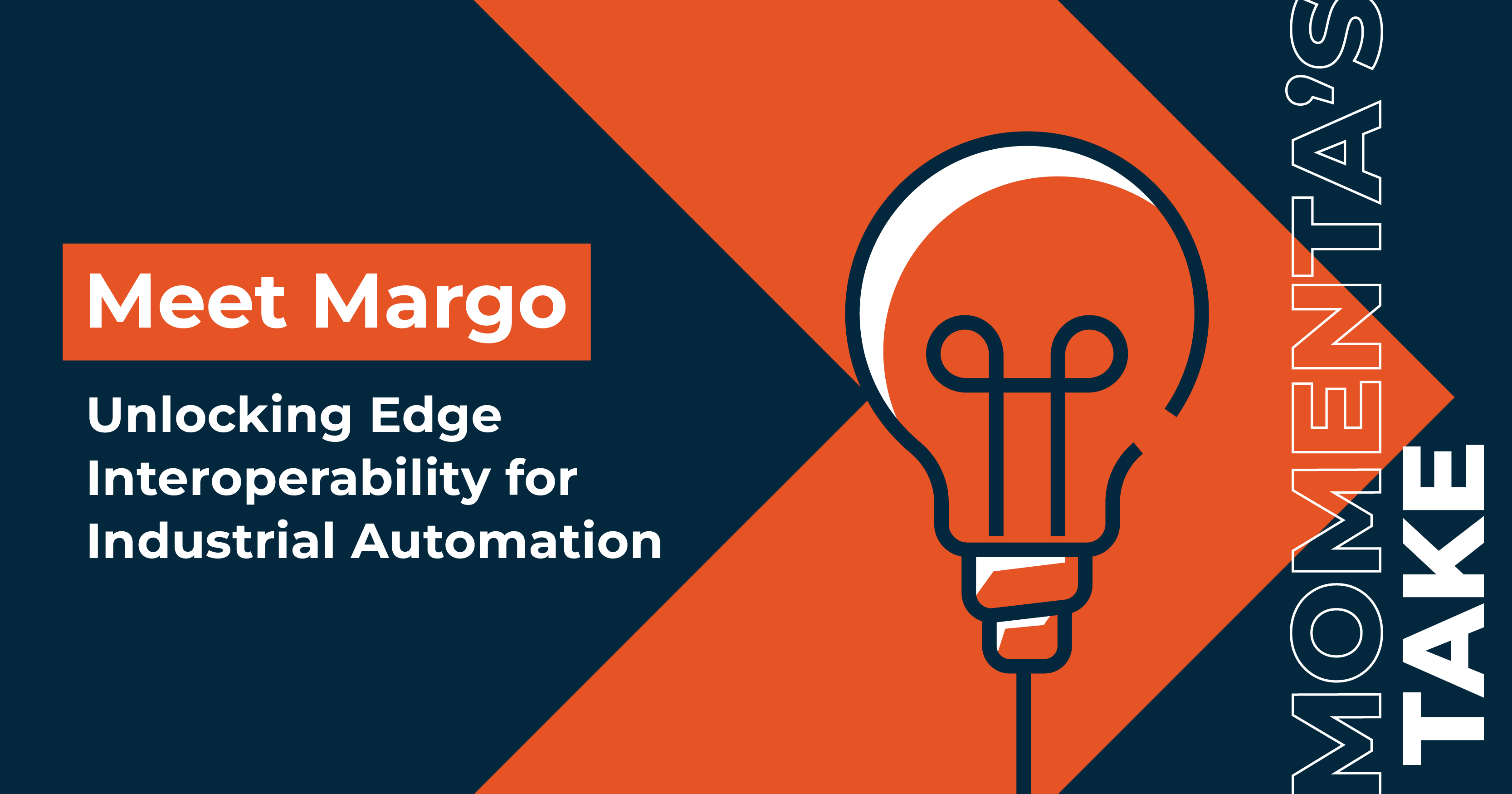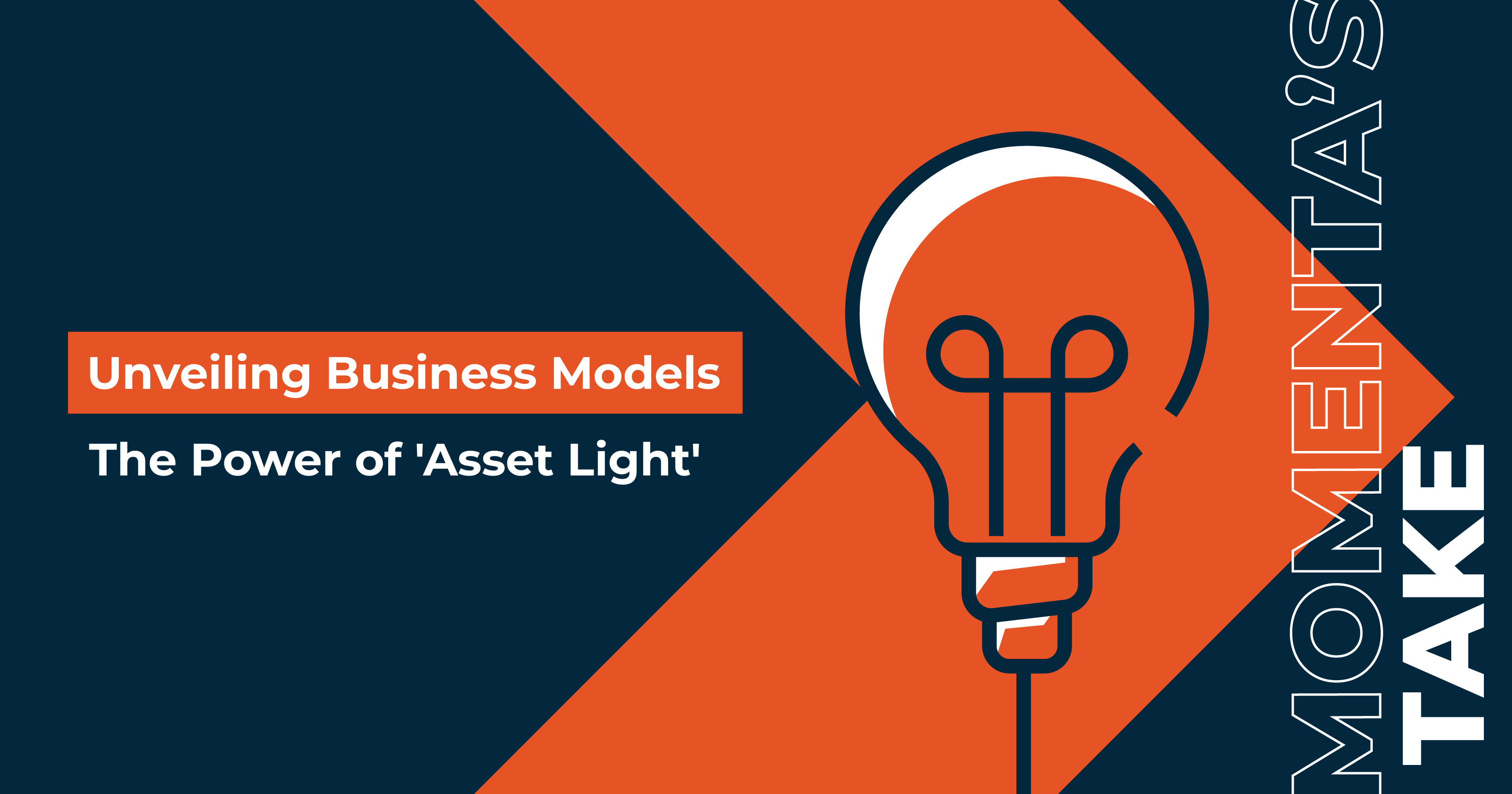Momenta's Take: The Digital Circular Economy
Ken Forster
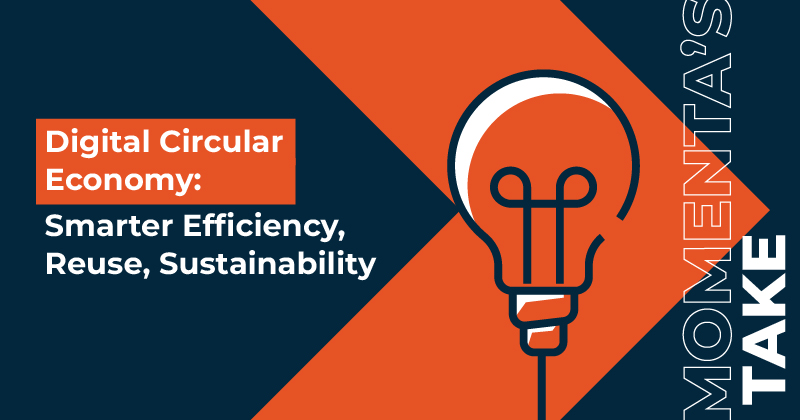
The Digital Circular Economy: Smarter Efficiency, Reuse and Sustainability
The concept of circular economy has emerged as one of the central guiding themes among businesses, policymakers, and researchers seeking to promote sustainable business. Circular Economy design emphasizes recycling and reuse of materials, refurbishment, remanufacturing, and recycling to create closed-loop systems where resources are continually regenerated.
This contrasts with what is known as a linear economy, which follows a "take, make, dispose" model, where resources and materials are extracted and turned into products, which are then used and disposed of at the end of useful life. This approach leads to depletion of resources and environmental damage. The Circular Economy aims to keep resources in use as long as possible, extracting the maximum value extracted during each use, and recovering and recycling as much of the materials into new products or uses. The Circular Economy concept is linked to several of the UN's Sustainable Development Goals, notably SDG 12 (Responsible Consumption and Production), with additional impact on related goals, such as SDG 6 (Clean Water and Sanitation), SDG 7 (Affordable and Clean Energy), and SDG 15 (Life on Land).
Leveraging Digital Technologies to Advance Circular Goals
There are multiple ways digital technologies help enable circular economic processes, including:
- Resource Optimization: Data analytics, AI, and IoT technologies can help monitor and analyze processes in real time, accelerating the ability to identify inefficiencies and optimize resource usage, leading to reduced waste.
- Product Lifecycle Management: Digital tools that track and trace products throughout their lifecycle enable companies to gain insights into product usage patterns, anticipate maintenance, and plan for product end-of-life pathways such as refurbishment, remanufacturing, and recycling.
- Asset Sharing and Product-as-a-Service Models: Platforms that enable asset sharing enable the transitioning of ownership to access-based models based on sharing (such as on-demand equipment rental). This can lead to higher product utilization rates and reduced demand for new products, contributing to resource conservation.
- Reverse Logistics: Reverse logistics processes, including product returns, refurbishment, and recycling, are critical for circular resource objectives. Companies can recover valuable materials from end-of-life products more effectively and reintegrate them into production.
- Supply Chain Transparency and Collaboration: Digital technologies enable manufacturers to track the origins of raw materials, ensure ethical sourcing practices, and collaborate with supply chain partners to focus on circular product design, material selection, and waste reduction.
Multiple vectors can be pursued to increase efficiencies, including industrial symbiosis, asset maintenance, and recycling of materials.
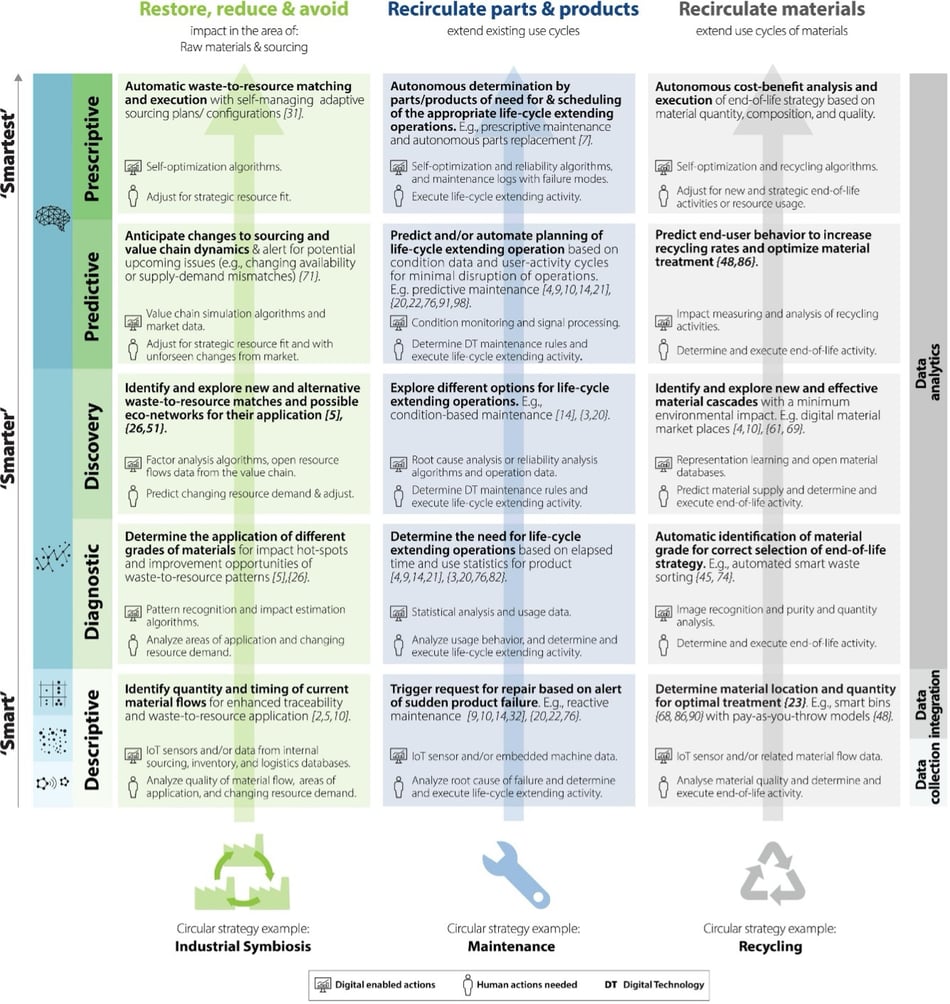
Transforming Industries to Meet Circular Goals
Key industries where Digital Technologies are being used to advance circular resource goals tend to be focused on manufacturing and production. Examples include:
- Fashion - In the fashion industry, digital technologies are used to track and trace materials throughout the supply chain, enabling greater transparency and accountability. One of Momenta's noteworthy portfolio companies is Smartex, which employs machine vision to conduct quality control inside circular knitting machines in real time, enabling defect detection during production and allowing manufacturers to spot problems immediately. This automated identification process reduces textile waste, CO2 emissions, energy, water, and capital expenditures.
- Manufacturing - Closed-loop manufacturing processes that utilize recycled materials and waste streams help to improve resource efficiency and drive cost savings. Additionally, digital-enabled predictive maintenance systems help prevent equipment failures and downtime, prolonging the lifespan of machinery and reducing the need for replacements. Tvarit is a Momenta portfolio company focused on helping metal manufacturers achieve net-zero operations. The solution utilizes AI models that analyze data from machine operator input, machine data, IoT sensors, and 3D design models, providing prescriptive direction that have been able to reduce energy consumption by up to 18% while increasing yield.
- Food - Digital technologies are helping revolutionize inventory management, reduce food waste, and improve food safety. Smart packaging equipped with sensors can monitor temperature, humidity, and freshness levels, ensuring that perishable goods remain viable for longer periods. Axino is a Momenta portfolio company that combines advanced sensor technology with AI algorithms to pro-actively monitor and predict the core temperature compliance of each refrigerated food category in retail stores. Precision agriculture techniques optimize resource usage and crop yields while minimizing environmental impact. Agtonomy is another Momenta portfolio company whose solutions help farmers leverage digital technologies, including advanced sensors and analytics, to optimize yield and reduce waste.
A recent post by Henrik Hvid Jensen highlights five capabilities businesses need to master in a circular economy.
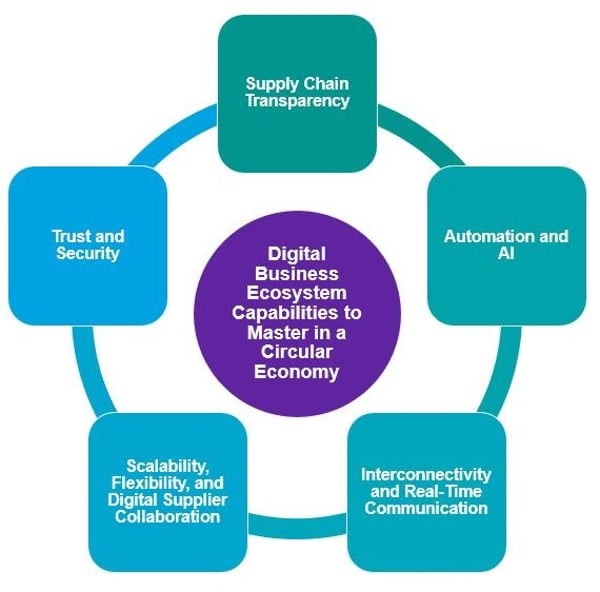
At Momenta, we believe in leveraging technology to drive the transition towards a circular economy - to optimize resource usage, reduce waste, extend product lifecycles, and promote sustainable business practices. Successful design can help reduce environmental impact, enhance resource efficiency, and create long-term value for both business and society as a whole.

Momenta is the leading Industrial Impact venture capital firm, accelerating digital innovators across energy, manufacturing, smart spaces, and supply chain. For over a decade, our team of deep industry operators has helped scale industry leaders and innovators to improve critical industries, the environment, and people's quality of life.

